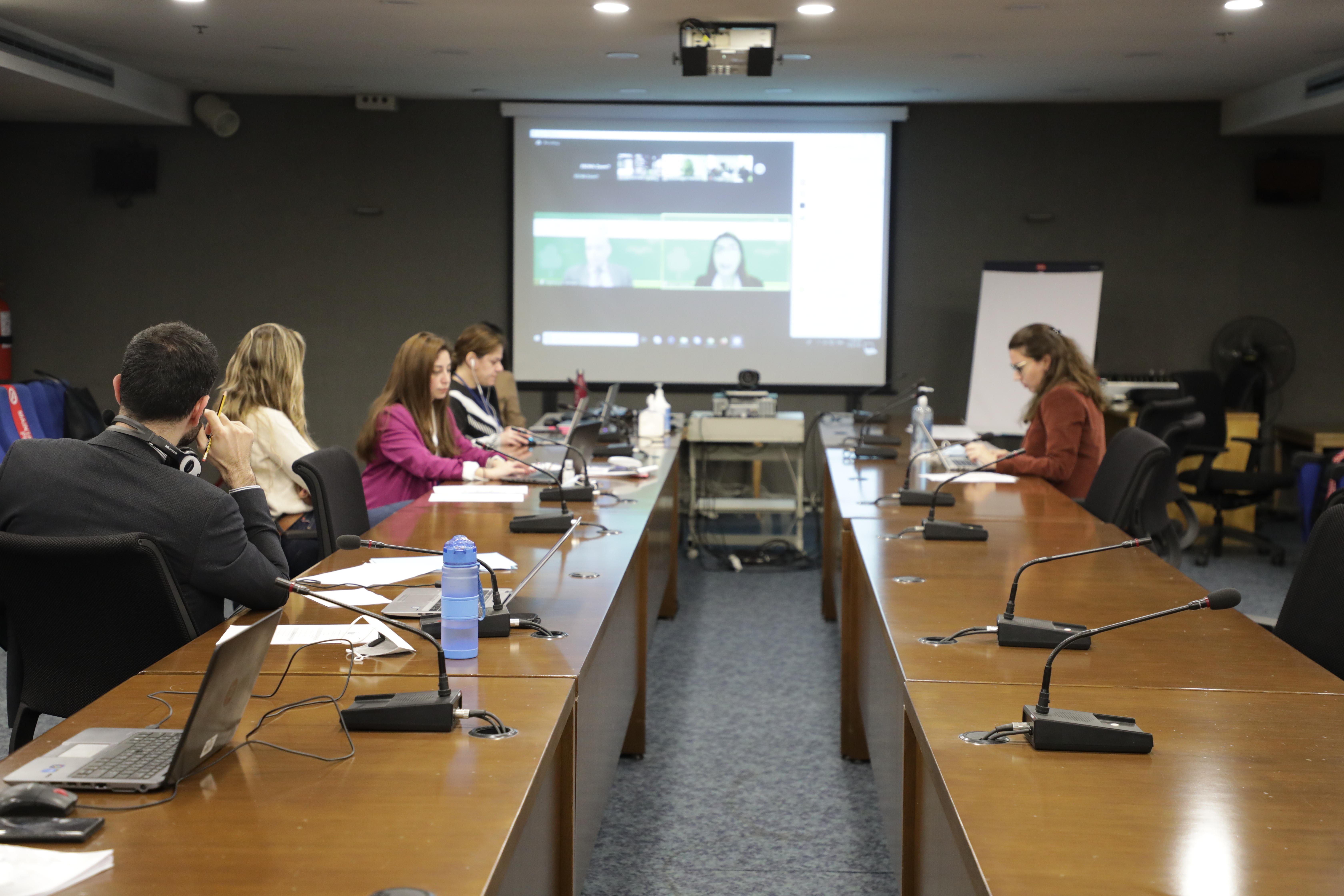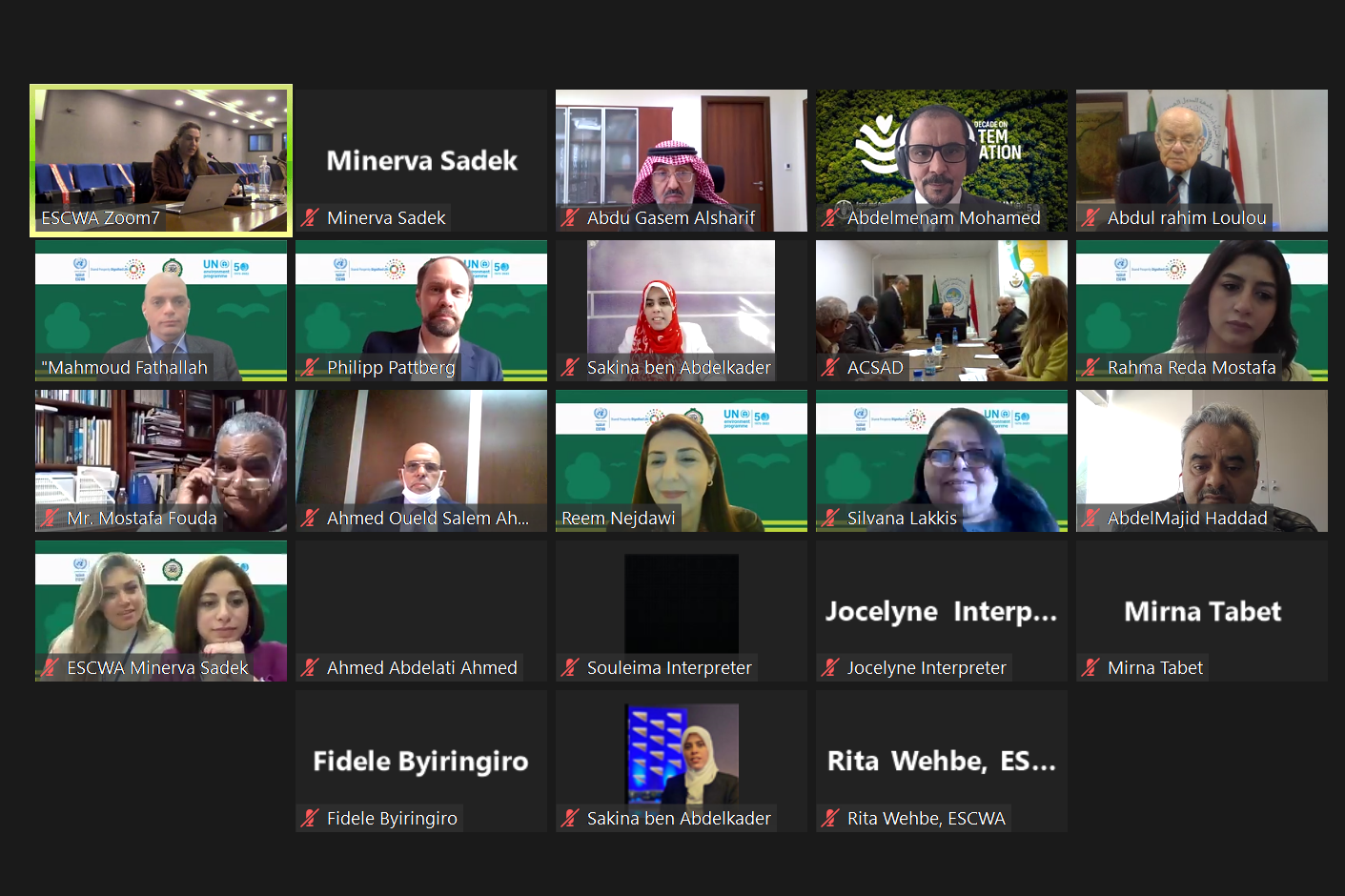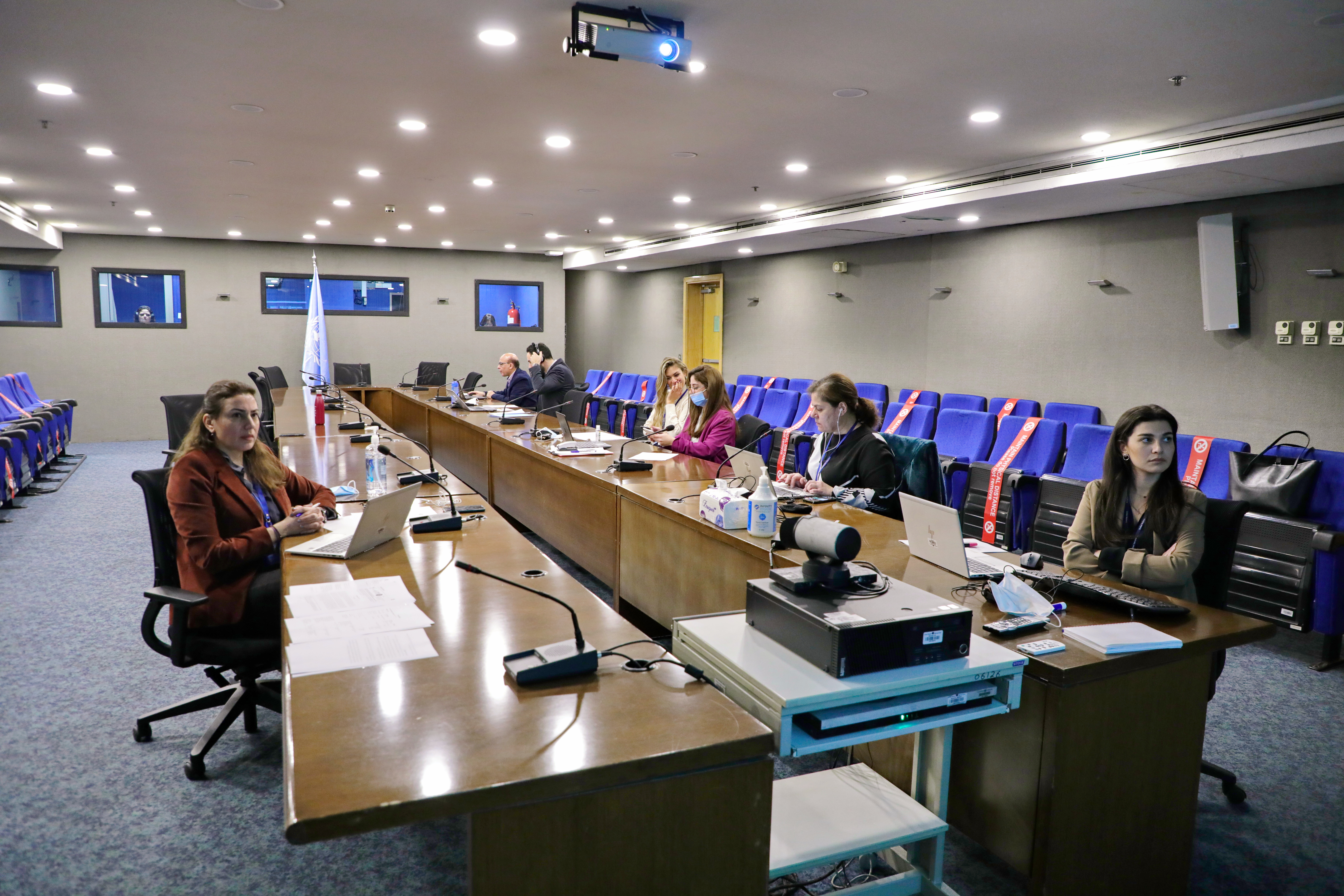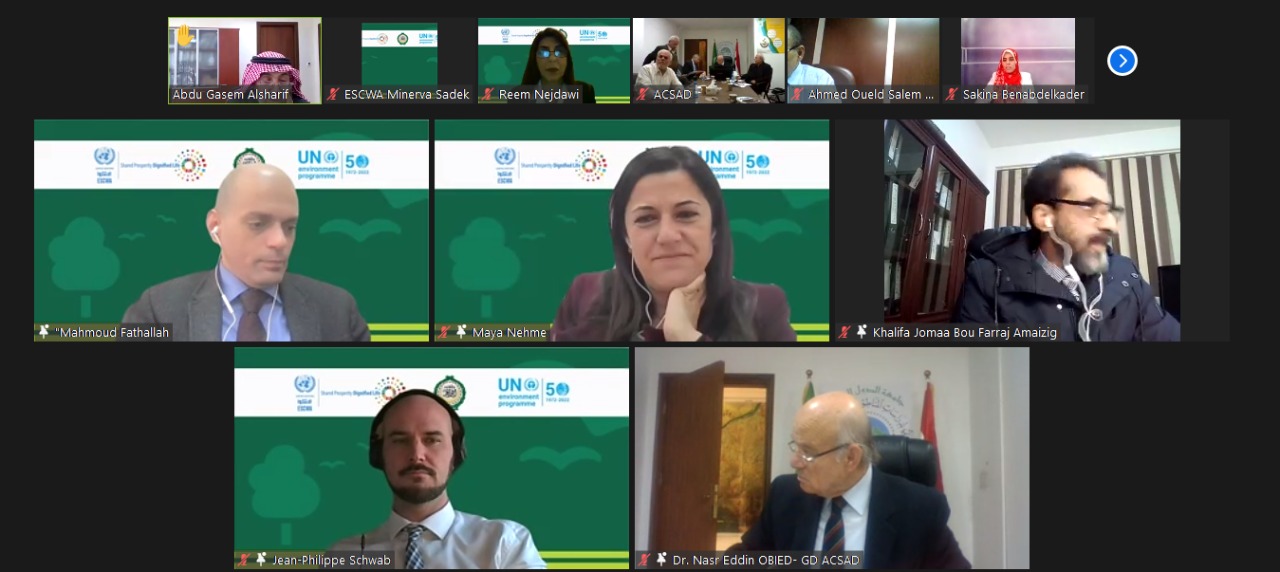-
The Arab region suffers from an accelerating loss of arable lands and biodiversity and faces various challenges for achieving the targets of SDG15, which highlights the importance of adopting a comprehensive approach to biodiversity protection. It is necessary to unify efforts and enhance synergies between countries of the region and specialized organizations and ensure effective participation in the implementation of regional initiatives for the rehabilitation and management of degraded ecosystems.
-
The Arab region is rich in biological diversity in terms of species and numbers, and those have adapted to pressures resulting from difficult natural and man-made conditions, therefore, this rich biological diversity must be preserved because it is an important source for the continuation of life on Earth.
-
Importance of benefiting from mobilizing of international efforts through interlinkages and synergies with regards to international processes such as the 2030 Agenda for Sustainable Development, the Paris Agreement on Climate Change, the United Nations Convention on Biological Diversity, the United Nations Convention on Combating Land Degradation, the United Nations Framework Convention on Climate Change, the United Nations Decade on Ecosystem Restoration, the post-2020 Global Biodiversity Framework and the Glasgow Climate Pact.
-
Benefit from global mobilization efforts, align national policies and strategies with global processes, and achieve a serious political commitment to halt ecosystems deterioration.
-
Encourage countries' reliance on nature-based solutions for achieving synergies between biodiversity preservation, combating desertification and land degradation and mitigating drought effects.
-
Integrate nature-based solutions into post-COVID-19 recovery plans, including those related to climate change, and work to comprehensively design nature-based solution interventions in line with ecosystem management strategies and urban and rural planning activities.
-
Develop national and regional investments to support countries in implementing their commitments to reduce biodiversity loss and land degradation and mitigate the effects of drought, especially in developing Arab countries and those suffering from conflicts.
-
Effective biodiversity and land conservation efforts depend on traditional knowledge and practices of indigenous communities and on the complementarity of those with modern technologies, with a focus on the role of indigenous peoples in achieving this.
-
All nature conservation initiatives must be subject to accountability in order to properly assess their impacts and intensify monitoring, reporting and verification efforts in this context.
-
Adopt a participatory approach from segments of society to develop plans, budgets and implement programs, and involve everyone in preservation of ecosystems, including from civil society organizations, farmers and others, and especially with regards to participation of women, youth and persons with disabilities..
-
Strengthen regional partnerships to support regional planning, increase knowledge and share experiences on transboundary issues related to combating desertification and preserving biodiversity.



